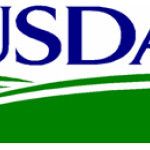- Industry: Government
- Number of terms: 41534
- Number of blossaries: 0
- Company Profile:
The North American Free Trade Agreement Implementation Act mandates end-use requirements for wheat and barley imported from any country requiring end-use certificates for imports of U.S. produced commodities. Canada is the only nation that requires such certificates, and U.S. wheat is the only commodity subject to the restriction. Regulations implementing the End-Use Certificate Program, implemented February 27, 1995, are found at 7 CFR 782.
Industry:Agriculture
The totality of the surrounding external conditions梑iological, chemical, and physical梬ithin which an organism, community, or object exists. The term is not exclusive in that organisms can be and usually are part of another organism’s environment. Thus one can speak of the environment as that within which humankind lives, i.e., separate and external; or, one can speak of humankind as a component of the environment.
Industry:Agriculture
Under implementing regulations of the National Environmental Policy Act of 1970, a document used by agencies to determine whether the environmental effects are sufficient to require an EIS.
Industry:Agriculture
An umbrella program authorized by the FACT Act of 1990 that includes the Conservation Reserve Program, and the Wetland Reserve Program. The FAIR Act of 1996 continues the CRP and WRP and creates the Environmental Quality Incentives Program. The goal of the ECARP is to provide long-term protection of environmentally sensitive land. Contracts, easements, and cost-share payments are used to assist landowners and operators of farms and ranches to conserve and enhance soil, water, and related natural resources, including grazing land, wetland, and wildlife habitat.
Industry:Agriculture
Equal protection from environmental hazards for individuals, groups, or communities regardless of race, ethnicity, or economic status. This applies to the development, implementation, and enforcement of environmental laws, regulations, and policies, and implies that no population of people should be forced to shoulder a disproportionate share of adverse impacts of pollution.
Industry:Agriculture
A document required of federal agencies by the National Environmental Policy Act for major projects or administration-initiated legislative proposals significantly affecting the environment. A tool for decision making, it describes the positive and negative effects of the undertaking and assesses alternative actions.
Industry:Agriculture
An independent federal government agency established in 1970 and charged with coordinating effective governmental action concerning the environment, including setting standards, promulgating and enforcing regulations, and initiating and implementing environmental programs. Two areas of jurisdiction that most directly affect agricultural production are the registration of pesticides and implementation of the Clean Water Act.
Industry:Agriculture
A program created by the FAIR Act of 1996 to provide primarily cost-sharing assistance, but also technical and educational assistance, aimed at reducing soil, water, and related natural resource problems. The program replaces the Agricultural Conservation Program, the Water Quality Incentives Program, the Great Plains Conservation Program, and the Colorado River Basin Salinity Control Program. EQIP is authorized at $1.3 billion in mandatory spending over 7 years (total), with at least half of the funding targeted to environmental concerns associated with livestock production; spending in general is to be targeted to state-designated priority areas. EQIP is to be operated to maximize the environmental benefits per dollar expended.
Industry:Agriculture
Study of the distribution of disease, or other health-related conditions and events in human or animal populations, in order to identify health problems and possible causes.
Industry:Agriculture
A term applied by the Uruguay Round Agreement on the Application of Sanitary and Phytosanitary (SPS) Measures. WTO Member countries shall accord acceptance to the SPS measures of other countries (even if those measures differ from their own or from those used by other Member countries trading in the same product) if the exporting country demonstrates to the importing country that its measures achieve the importer’s appropriate level of sanitary and phytosanitary protection.
Industry:Agriculture
